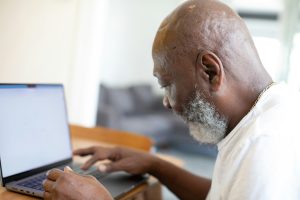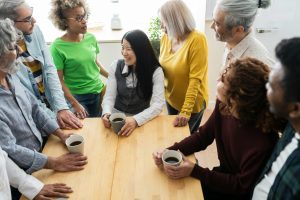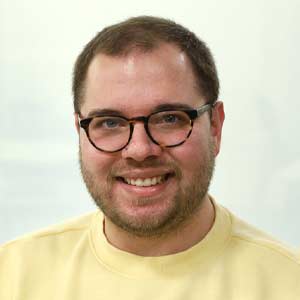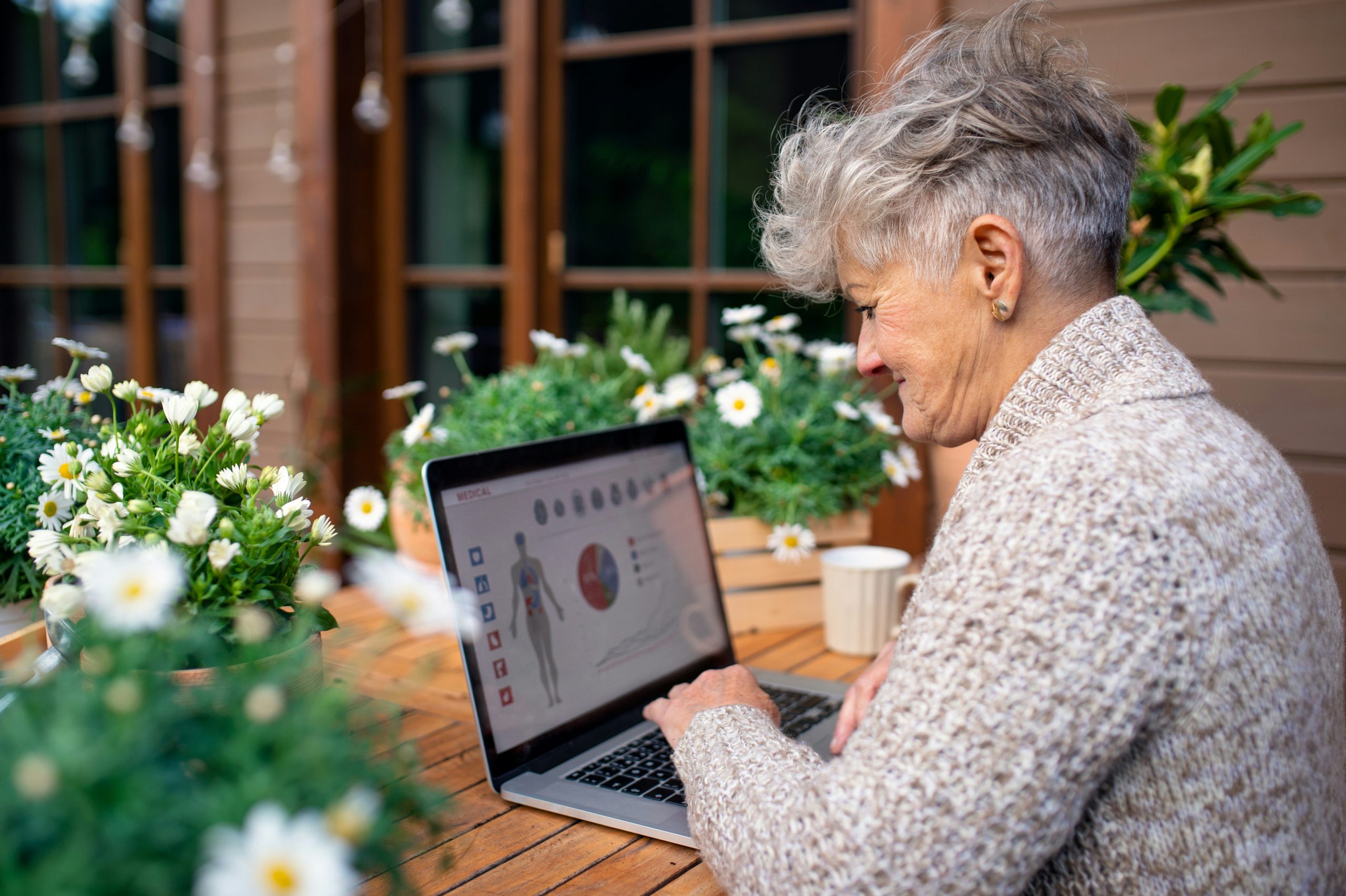By: Parker Story and Lisa Fanelli
As the landscape of higher education continues to evolve, so must our approaches to teaching and learning.
One of the most significant shifts we’re seeing is the growing presence of older adults returning to the college classroom. Recent demographic projections suggest a 13% decline in traditional college-age students by 2041. While this trend presents challenges, it also creates opportunities to welcome nontraditional students, including older adults and second-career seekers, to college campuses.
These students bring rich life experiences and a strong sense of purpose to the classroom. However, they may also face unique barriers, such as balancing coursework with work and family responsibilities, overcoming past negative educational experiences, and navigating unfamiliar technologies. This is where thoughtful instructional design and strong institutional support become essential.
At Goodwin University, we are committed to fostering an age-inclusive environment where learners of all ages can thrive. As an officially designated Age-Friendly University (AFU), we strive to make education accessible to students from all walks of life. By employing strategies and instructional models that emphasize accessibility and digital literacy, we believe universities can open more doors to lifelong learning.
Let’s explore how.
Universal Design for Learning: A blueprint for inclusion
Universal Design for Learning (UDL) offers a framework that helps remove barriers to education and supports the success of all learners, regardless of age or background. UDL encourages flexible teaching strategies and multiple means of engagement, representation, and action.

At Goodwin, UDL is more than a philosophy — it’s embedded into our course design. Our course template, created by the Department of Instructional Design, is built for diverse participation methods including video lectures, textbook readings, PowerPoint slides, and curated YouTube videos.
The instructional designers work closely with faculty, helping them select materials, embed them into their courses, and accompany them with guiding questions that focus students’ attention as they navigate the learning content. In our online Human Biology course, for example, students choose the study method that works best for them, supported by clear instructions and accessible content.
For older learners, this approach is particularly empowering. It reduces the stigma nontraditional students may feel and builds confidence through real-world applicability. For instance, older students may relate their professional and personal experiences directly to course content, deepening their engagement. By fostering active participation and meaningful connections to the material, UDL principles help older learners stay motivated, build skills, and succeed academically.
Designing for flexibility and accessibility
Accessible, flexible learning environments benefit students of all ages — but they can offer a positive advantage for supporting older learners, second-career seekers, and those balancing education with work and family responsibilities.
At Goodwin University, we are proud to embrace this approach. Our flexible course formats — including on-ground, online, hybrid, weekend, and evening classes — are a cornerstone of our age-inclusive philosophy. We also integrate flipped classroom models, allowing students to review material ahead of time and engage in active, applied learning during class sessions.
Our weekly course rhythm also recommends what students could do daily to stay on top of the class. The weekly course rhythm is just a suggestion, not a requirement, but it provides students with the start of a plan that they can adapt based on their individual needs.

We believe accessibility should be seamless and built into every learning experience. That’s why we prioritize clear and consistent course navigation, offer multiple formats for assignment submissions (such as papers, presentations, and infographics), and provide extended deadlines when needed.
Additionally, the UDoIt plug-in supports our instructors in identifying and correcting accessibility issues, helping ensure that digital content meets Web Content Accessibility Guidelines (WCAG). To assist faculty in using the plug effectively, we provide workshops guiding instructors on basic skills, best practices, and strategies for avoiding accessibility issues in their initial course design.
Furthermore, we incorporate the Transparency in Learning and Teaching (TILT) framework, encouraging faculty to clearly communicate not just what assignments are, but why they matter. This small but powerful shift strengthens students’ motivation, builds metacognitive skills, and supports a smoother transition for those returning to the classroom after time away.
Building digital confidence
Technology is often cited as a barrier for older learners. Upskilling in digital literacy is not only essential for succeeding in online and hybrid courses, but it also empowers adult learners to thrive in today’s tech-driven workforce.

To help bridge this gap, Goodwin offers technology “boot camps” and intergenerational peer support programs both before and during the semester. We also provide Quick Reference Guides and tailored how-to trainings based on student feedback, including resources specifically focused on navigating Canvas.
We also use platforms like Canvas Studio to make video content more accessible through automated and manually edited captions. Instructors are guided on selecting videos with verified captions and adding alt-text to images, ensuring all learners — regardless of sensory ability — can engage with the content.
Fostering an age-inclusive campus
Age-friendly education goes beyond the digital classroom. It’s in the physical spaces — well-lit classrooms with accessible seating and clear signage — and in campus culture. At Goodwin, we uphold an age-inclusive culture by supporting intergenerational learning, reverse mentorships, and flexible class schedules. Student organizations are evolving to include nontraditional students, and faculty receive training on age bias and inclusivity.

Looking ahead, we envision universities partnering with senior centers, offering satellite courses in residential communities, and creating living-learning environments that blend traditional and nontraditional students. Credentialing and certificate programs can provide bite-sized progress toward degrees, and student governance should reflect the full spectrum of our student body.
We’re also exploring research opportunities and metrics to better understand and improve age-inclusive practices. By forming communities of practice and listening to our students, we aim to continuously evolve and improve.
At Goodwin University, we see older adult learners not as exceptions, but as essential members of our academic community. Through intentional design, flexible learning models, and a commitment to inclusion, we’re proud to support their success — and in doing so, strengthen the future of higher education.
Your next chapter begins at Goodwin. Learn more about joining the University community today!
Dr. Lisa Fanelli, OTD, MBA, OTR/L, is an Associate Professor and Program Director for the Health Science and Public Health programs at Goodwin University, East Hartford, CT. Dr. Fanelli is a Credentialed Leader in Academia, a Leadership Fellow, a Senior Universal Design for Learning Teaching Fellow, a Dementia Friend Champion, and an Age-Inclusive Champion leading the initiative of the Age–Friendly University designation for Goodwin University and the University of Bridgeport. Dr. Fanelli values the impact that community-based learning has on student success as evidenced by her vast experience as Director of Clinical Education at Quinnipiac University, Program Director of Health Sciences to PA and PharmD at the University of Saint Joseph, and continued community partnership development at Goodwin University. She has 28 years of experience as an occupational therapy practitioner working with older adults who have physical and neurological conditions. Lisa has numerous publications and has presented regionally, nationally, and internationally on research focused on Universal Design for Learning, clinical education, rehabilitation, and dementia care. Professor Fanelli has been instrumental in utilizing Open Educational Resources (OER) available to faculty in converting courses in Health Science and Public Health to OER courses at Goodwin University. In 2022, Dr. Fanelli was awarded a $1.5 million grant from the federal government to increase the public health workforce and has been actively engaged in this three-year grant.

Parker Story is an instructional designer with a focus on accessible design practices that align with Web Content Accessibility Guidelines (WCAG) criteria, ensuring inclusive and effective learning experiences. With a background in education, he holds a Master of Arts (MA) in French Literature and a Master of Arts in Teaching (MAT) in French, bringing a deep understanding of pedagogy and learner engagement to his work. Passionate about creating equitable online learning environments, he collaborates with faculty and subject matter experts to develop courses that prioritize usability and accessibility.
